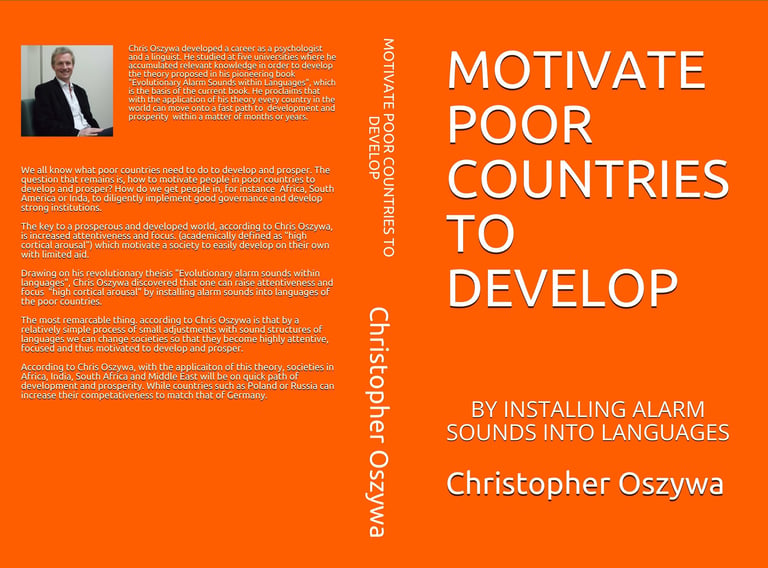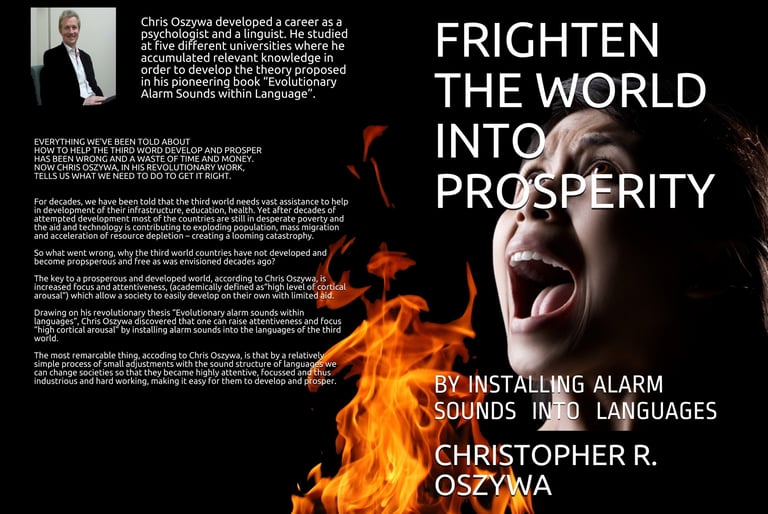Evolutionary Alarm Sounds within Languages: Unlock Potential of Every Society in the World.
Explore how alarm sounds—vowel-like phonetic elements resembling cries or screams—play a powerful role in shaping human behavior and societal outcomes. These sounds, embedded within the syllables of spoken language, are believed to stimulate heightened focus, urgency, and drive, contributing to greater economic competitiveness and, ultimately, prosperity.
In today’s world, countries like Japan and increasingly China demonstrate how languages rich in alarm sounds correlate with disciplined, high-performing societies. These phonetic traits may help explain their rapid development and global influence.
Looking back, ancient civilizations such as Rome and Greece also spoke languages with a high concentration of alarm sounds. This linguistic feature may have supported their organizational strength, cultural innovation, and historical dominance.
Exploring Evolutionary Alarm Sounds with in Languages
Definition of: Alarm Sounds in Languages
Alarm sounds in languages resemble cries or screams and typically exhibit vowel-like structures, characterized by the presence of formants visible on spectrograms. These sounds occur within syllables and can manifest either as single units or as combinations of sounds.
Single sounds often consist of long vowels or vowels accompanied by tonal or pitch variations.
Combination sounds may include diphthongs, triphthongs, or vowels followed by nasal or lateral finals.
The alarm quality of a syllable is heightened by factors such as increased duration, intensity, and the presence of highted pitch or tonal shifts. These elements contribute to the perceived urgency or emotional intensity of the sound. (As defined by Christopher Richard Oszywa)
Chris Oszywa is known for his theory on evolutionary alarm sounds within languages. He proposes that languages with a high concentration of alarm sounds can enhance focus, urgency, and productivity in societies. His work suggests that this could drive economic prosperity and competitiveness.
He has published videos and books on this topic, exploring how ancient civilisations like Rome and Greece used alarm sounds in their languages to maintain high levels of focus and motivation.
Chris suggests that languages can be engineered to increase the intensity and concentration of the alarm sounds in languages so that these societies can become economically developed and prosperous.
Note: Alarm sounds in languages resemble cries or screams and typically exhibit vowel-like structures, characterized by the presence of formants visible on spectrograms. These sounds occur within syllables and can manifest either as single units or as combinations of sounds.
Purchase the Book
The book "Motivate Poor Countries to Develop: by installing Alarm sounds into Languages"is the third, and the latest, edition of the book originally titled "Evolutionary Alarm Sounds within Languages" . It contains all the information that is present in the earlier two version, with expended and updated information. The Author, Christopher Oszywa is currently working on a much larger and final version of the book, which is expected to be published towards the end of 2025.
To purchase any of the editions please click on the images below and you will be taken to sites that offer these books for sale.
Contact the Author
Please reach out to me if you have any interesting ideas or want to further discuss the topic of evolutionary alarm sounds within languages.
Connect
CHRIS.richard.oszywa@gmail.com








